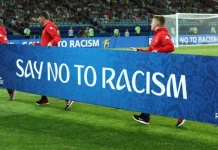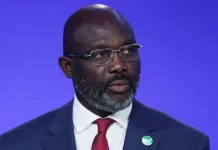The cost of hosting the 2026 FIFA world cup by a host of three countries (United States, Canada and Mexico) will be the most expensive event ever. The event will see 48 teams and 104 matches being carried on the 16 cities and this will attract millions of tourists and athletes worldwide. But logistical disputes over visas and civil liberties are bringing serious doubts to the question of access and equity to the event.
Seventy eight matches will be hosted by the United States placing the vast majority of fans and parties at the gates of the United States immigration ready to heave. The strain is already showing. As an example, in Colombia the wait-time of visas is above 700 days. Turkey has up to 560 days delay, Morocco has to wait 332 days. These numbers are signs of structural stages of bottlenecks, which can exclude whole communities.
Visa Restrictions: Barriers To Participation
Complex And Fragmented Visa Processes
Unlike previous single-country tournaments, the 2026 model introduces three separate immigration systems. A U. S. visa does not offer entry to Canada and a Canadian or a Mexican visa would not be adequate entry to the United States. Although Mexico permits U.S. holders of visas the privilege to enter the country within 180 days, the same courtesy is not related to the other hosts.
To apply for a common U.S. tourist visa there is a DS-160 form, a non-refundable fee of 185 dollars, and a mandatory visit to the office. The backlog in appointment, particularly in some countries with little or no U.S officials, further increases the months to the already laborious procedure. Many first-time applicants may keep the timeline even longer because they can get two appointments, one to set a biometrics and another to get an interview.
Discriminatory And Exclusionary Impacts
Visa policies of the United States discriminate against people of the flagged countries, including Iran and Cameroon. This could hinder the ability of national team supporters—or even athletes and staff—from attending the World Cup.
Travelers may also be subject to digital profiling. The U.S. Department of Homeland Security continues to scan social media histories of visa applicants, creating an atmosphere of surveillance. In this context, political opinions, religious beliefs, or prior activism might become liabilities.
Gender identity further complicates the process. Transgender and non-binary applicants have reported confusion and delays due to mismatches between passport information and visa application fields that demand binary sex identification. This misalignment clashes with FIFA’s own pledges on gender inclusion.
Free Speech And Privacy Concerns
Border Screening And Expression
Tightened security at the border point has raised the fear that the issue of freedom of expression has been muted even prior to the tournament. Even if you just have a social media that shows your political leanings, particularly about foreign or domestic policy in the U.S., travelers often see detainment or refusal to be entered. This randomness of decisions is an obstacle to the significance of the World Cup as an impartial field where cultures and sports are celebrated.
The result of this climate is that it has made certain activists and fans self-censor. The opportunity of surveillance, as well as perceived surveillance, can end up chilling speech. FIFA shares the values of diversity and openness but these practices imply not the expansion of the civic space; it implies the closing.
The Broader Human Rights Context
Beyond the issue of border entry, the Sport & Rights Alliance and other advocacy groups warn of a wider pattern of civil liberties at risk. Labor rights, especially for service workers and temporary staff, are under-monitored. Press freedom remains fragile, especially in host cities with histories of suppressing protests or independent journalism.
Despite the U.S., Canada, and Mexico pledging alignment with FIFA’s Human Rights Policy, implementation mechanisms remain unclear. The lack of legal enforceability raises doubts about accountability when violations occur.
FIFA’s Commitments And The Reality On The Ground
Promises Vs. Practice
The bidding process carried by FIFA in the year 2026 indicated that nations that are supposed to host FIFA guarantee to respect the important human rights standards. These assurances were on migrant labour, freedom of the press, non-discrimination and the freedom of association. But activist groups such as Human Rights Watch say that mere words do not work.
It has been demanded that FIFA should contract host governments on a legally binding level. Their absence will make enforcement based on discretionary actions of little effectiveness. The previous events, such Qatar 2022, exemplified the ineffectiveness of non-binding commitments on political or logistical pressure.
Efforts To Address Challenges
To bring the mounting criticism under check, FIFA has initiated communication channels with North American immigration officials. In the US, the Congressional Soccer Caucus is said to have talked of a simplified visa system that would temporarily loosen the cross-border movement.
Considerations of increasing consular staff in key countries have also been proposed by the U.S. State department but nothing formal has been actualised. In the meantime, FIFA President Gianni Infantino has conducted bilateral negotiations with the governments of the host countries to reduce administrative obstacles. However, such are preliminary talks and systemic challenges are not resolved yet.
Voices From The Field
The matter was touched upon by Sky Lee, one of the leading activists of human rights. She stated,
“The World Cup should be a celebration of global unity, but visa restrictions and surveillance threaten to exclude the very people who make this event meaningful.”
Her comments echo that many people are worried that policy decisions are compromising the inclusive spirit of the World Cup.
People are not going to attend the World Cup after DHS announced they will be there suited and booted ready to provide security at the games.
This is a dry run for the Olympics nobody will come to America to be met by DHS agents. https://t.co/zCJtG3dVkB
— Skyleigh Uhrich (@Sky_Lee_1) June 18, 2025
Lee’s concerns have been echoed by other civil society organizations monitoring the 2026 World Cup’s compliance with international human rights standards.
The Challenge Ahead
The upcoming tournament faces a test far beyond logistics or stadium capacity. Although the tri-national format is innovative, the legal consistency, mobility, and access open structural impediments. The restrictive visa policies cannot be discussed as some technical matters, they are political tools creating the possibility and denying to others to be a part of global activities.
The issue of surveillance and restrictions on speech imply an opposition between the safety of people and individual freedom. The World Cup 2026 is not taking place in a vacuum, as it is immersed in wider geopolitical trends which report on the discussion of the border policy in the United States, and migratory trends in the region of the Americas.
FIFA is faced with the challenge of trying to decide whether it can play the role of a real regulator of human rights or it has to go into passive mode. Failure to enforce protection will subject the tournament to forego its intended results and move towards eradicating the voices it aims to exalt.
The mystery that hangs dangling over the 2026 World Cup is apparent, will it be what it has been designed to be; a truly international, relaxed party or will it end up being a lesson in mission flooring to the ambition of falling into the hands of bureaucracy and selectiveness? The question will determine more than the success of the tournament, it will determine whether sport could continue to serve as a channel to rights, equality and belonging.













